Expansion of Idea means to understand and to describe the meaning and idea given in the particular text. The text may be a Proverb, an Idiom, a Title, a Poetic Line or a Good Thought. The words used in this text are rather symbolic. The words are systematically decoded, which imply a very artistic value. Most of the time this kind of text is used to sum up the idea.
Here’s how we can expand an idea:
- Adding Details and Descriptions:
- Original Idea: “The garden is beautiful.”
- Expanded Idea: “The garden is beautiful, with vibrant flowers in full bloom, neatly trimmed hedges, and a variety of colorful plants that attract butterflies and birds.”
- Using Examples:
- Original Idea: “Reading is beneficial.”
- Expanded Idea: “Reading is beneficial because it improves vocabulary, enhances comprehension skills, and stimulates the imagination. For instance, reading fiction can transport you to different worlds, while reading non-fiction can expand your knowledge on various subjects.”
- Incorporating Explanations:
- Original Idea: “Exercise is important.”
- Expanded Idea: “Exercise is important because it helps maintain a healthy weight, reduces the risk of chronic diseases, and boosts mental health by releasing endorphins that improve mood.”
- Providing Reasons and Evidence:
- Original Idea: “Online learning is effective.”
- Expanded Idea: “Online learning is effective as it offers flexibility for students to learn at their own pace, provides access to a wide range of resources, and allows for interactive and personalized learning experiences. Studies have shown that students often perform better in online courses due to the ability to review materials multiple times.”
- Comparing and Contrasting:
- Original Idea: “City life is different from country life.”
- Expanded Idea: “City life is different from country life in many ways. Cities are bustling with activity, offering numerous job opportunities, entertainment options, and conveniences such as public transportation. In contrast, country life is more peaceful and laid-back, with a stronger sense of community and closer proximity to nature.”
- Elaborating with Narratives or Anecdotes:
- Original Idea: “Traveling is educational.”
- Expanded Idea: “Traveling is educational because it exposes you to different cultures, languages, and histories. For example, during my trip to Japan, I learned about traditional tea ceremonies, the significance of historical temples, and the unique etiquette of Japanese dining. These experiences broadened my understanding and appreciation of the world.”
By expanding ideas, we create more engaging, informative, and persuasive writing that thoroughly communicates our thoughts and engages our audience.

EXAMPLES:
| “Action Speaks Louder than Words” |
This is an age old proverb with a deep hidden meaning inside. To say something and to do something are two different things. It is a well-known fact that people often do not do what they say. It is why people value hard work more than mere promises.
What you do is more important and has a greater impact than what you say. In simple terms, people judge you more by what you do than by what you promise or talk about. Your actions reveal your true intentions and beliefs. So, it suggests that it’s not just about saying you’ll do something, but actually doing it that matters the most.

| “The Face is the Index of the Mind” |
This is a famous Proverb in English. The mind is always engaged in one or other thought process. They may be of happiness, sadness, joy, sorrow, anger, fear, depression etc. Our body is an indicator of our moods and feelings. All our thoughts, emotions and feelings are reflected on our face.
Happiness and love are easily reflected in a positive manner on our face. The face of a person with anxiety shows uneasiness. Some people try to keep their emotions under control and present a blank face. Brilliant psychologists can immediately read the face and judge what is going on in our mind. Always keep calm as far as possible and light up your surroundings with a happy and smiling face.

| “Speech is Silver & Silence is Golden ” |
This is a very popular proverb in English. It is said that-
‘When you have the speech of excellence,
The better and better you teach.
When you have the power of silence,
The higher and higher you reach!’
It is a fact that when we speak, others become silent and when others speak, we become silent. But it’s always upon us that what we choose- ‘speech’ or ‘silence’. No doubt, speech is Silver. But most of the time silence plays a very golden role. It lends grandeur and charm to human lives. Silence is the sleep that nourishes wisdom.

| “Argument is the Worst Kind of Communication ” |
According to the famous satirist Jonathan Swift, ‘Argument is the worst sort of conversation.’ This proverb teaches us the real value of human life. Argument is not the proper way to communicate with each other. When people argue, they are engaged in conflict and it’s usually not pretty.
Argument always spreads negativity. People do not treat each other with respect. They get defensive, try to prove their own points, and fail to listen to each other. In an argument, people cannot freely discuss their ideas with others because they are in stress anxiety and in anger. To avoid argument is the only way to make us ideal and intellectual. Argument is nothing but wasting our Time & Energy.

| “Attitudes are the Real Figures of Speech ” |
This is commonly used Proverb in English. According to Edwin Friedman, ‘Attitudes are the real figures of speech.’ Attitude is a settled way of thinking or feeling about something. Edwin said that communication does not depend on language or articulation. Most of the time it depends on the emotional context in which the message is being heard.
As a human being we must recognize that the real assets of life are the people with whom we interact. Our way of thinking, our way of expressing ideas and feelings must be rather effective and powerful. To attract people requires a positive and cheerful attitude.

| “The Wise Man has Long Ears and a Short Tongue ” |
It is always said that ‘The wise man has long ears and a short tongue’. This German proverb is famous in all over the world. ‘Long ears’ show the willingness to listen carefully. ‘Short Tongue’ shows self-control by allowing others to make his views and opinions. This is the real greatness of the person. It proves the wisdom of the person.
Listening is the most valuable treasure of man. A person, who uses it skillfully, is aptly called a ‘wise’ man. It is much more important to be able to listen correctly. More emphasis must be placed on effective listening and understanding. After all, “The less you speak, the more you hear.”

| “All roads lead to Rome” |
This is a very famous idiom in English. It means that the same outcome can be reached by many methods or ideas. This idiom refers to the road system of the Roman Empire, in which Rome was positioned in the center, with every road attached to it.
All routes were directed towards the center. In day to day life it means that there is more than one way to achieve the same thing. Variety of methods will yield the same result in the end. Exactly the same outcome can be produced using many different ways. There are many different routes to reach the same destination Source.

| “A man without liberty is a body without a soul” |
It is quite true that liberty is as essential as air we breathe. If you have liberty, you can create any anything; but if you don’t have it, life appears hard struggle. If a man has all the luxuries but no liberty, those luxuries can’t make him happy. On the contrary if he has less luxuries, but complete liberty, he will be happy.
Liberty is life. Without liberty life is worse than hell. Liberty means to gain knowledge, it means to express thoughts. Liberty provides a real value of living to the man worldwide. Without liberty, a man will be a slave to a master; neither will he speak nor will he express his pain.

| “Manners Maketh Man” |
The proverb ‘Manners Maketh Man’ means how the politeness and good manners are essential to humanity. This proverb is thus often used as a way to remind people to be polite. Good manners can apply to several aspects of human life, including how we speak, the words we use, our tone of voice, our gestures and our actions.
A well-mannered person is courteous, amiable and always friendly. He is not vulgar in his speech or manner. He is a pleasant speaker and gives a patient ear to what the others have to say. The well-mannered interactions between Student-Teacher, Teacher-Teacher, Parents-Children etc. teach us a lot.
“Honesty is the Best Policy”
The phrase “Honesty is the Best Policy” means that telling the truth is always the best choice, even when it seems difficult. Being honest helps to build trust and respect in relationships with others. When we speak the truth, people can rely on us and believe in our words. Although lying might seem like an easy way to avoid problems, it often leads to bigger issues later on. Dishonesty can create misunderstandings, hurt feelings, and damage relationships.
On the other hand, honesty helps to solve problems, clear doubts, and prevent conflicts. It makes us feel good about ourselves, knowing that we did the right thing. Even in challenging situations, staying truthful brings peace of mind and ensures that we live a life with integrity. In the end, honesty may require courage, but it always leads to better outcomes in life.

“Slow and Steady Wins the Race”
The saying “Slow and Steady wins the race” teaches us the value of patience and consistency. It means that success does not always come from rushing or trying to do everything quickly. Instead, taking small, careful steps towards a goal, while remaining focused and determined, is the key to achieving it. Just like in a race, sometimes those who hurry to finish first may tire out or make mistakes.
On the other hand, those who maintain a steady pace, without rushing, are more likely to stay on track and succeed in the end. This saying reminds us that success often comes to those who are patient, work hard consistently, and do not give up. Whether in studies, work, or any personal goals, it is important to stay focused, be patient, and keep working steadily. In the long run, perseverance leads to greater success.

“Unity is Strength”
The saying “Unity is Strength” emphasizes the power of working together as a team. When people come together and collaborate, they can achieve much more than if they work alone. Just like how individual pieces of a puzzle come together to form a complete picture, when people unite for a common cause, their combined efforts can bring success. Unity helps in overcoming challenges that might seem difficult to face alone. It strengthens bonds, promotes mutual support, and brings out the best in each person.
In times of hardship or conflict, unity becomes even more important, as people can rely on each other for help and encouragement. Whether in a family, community, or nation, unity fosters harmony, peace, and progress. Therefore, when we join forces and stand together, we can face obstacles confidently and achieve great things that would be impossible alone.

“Be the Change You Want to See”
The saying “Be the change you want to see” encourages us to take responsibility for making the world a better place. It means that instead of waiting for others to bring about change, we should start with ourselves. If we want to see kindness in the world, we must first practice kindness. If we wish for honesty, we should be honest ourselves. By setting an example through our actions, we inspire others to do the same.
Change begins from within, and small actions can have a big impact. When we take the first step and act with the values we want to see in society, we create a ripple effect that can spread to others. Ultimately, this saying reminds us that we have the power to make a difference, and by embodying the qualities we desire, we contribute to creating the world we dream of.

“All is Well That Ends Well”
The saying “All is well that ends well” means that if a situation ends positively, all the difficulties and challenges faced along the way are forgotten. It teaches us that the outcome is what truly matters, even though the journey may have been full of struggles. Life is often full of ups and downs, and not everything goes according to plan. However, if the final result is good, it makes all the hardships worthwhile.
This saying encourages us to remain hopeful and patient during tough times, as the end may bring success, happiness, or resolution. It reminds us that challenges are a part of life, but a positive ending can make everything seem worth it. So, we should keep moving forward, trusting that things will get better, and in the end, everything will turn out fine.

“A Friend in Need is a Friend Indeed”
The saying “A friend in need is a friend indeed” means that true friends are the ones who support and stand by you during difficult times. While it’s easy to be friends when everything is going well, it’s during moments of trouble or hardship that the strength of friendship is truly tested. A real friend is someone who offers help, comfort, or advice when you need it the most.
This saying highlights the importance of loyalty, kindness, and trust in friendships. When you’re going through tough situations, a true friend will be there for you, offering a helping hand without expecting anything in return. Their actions during difficult times show their genuine care for you. In contrast, people who only stick around when things are easy may not be true friends. Therefore, it’s in the time of need that the value of true friendship is revealed.

“A Bad Workman Blames His Tools”
The saying “A bad workman blames his tools” means that a person who is not skilled or does not put in the effort often blames external factors for their failure instead of accepting their own mistakes. It suggests that poor performance is usually due to the lack of skill, effort, or practice, rather than the tools or resources being used. For example, someone who is not good at their job might blame the tools or equipment they are using, rather than acknowledging that they lack the knowledge or ability to perform well.
This saying reminds us that we should take responsibility for our actions and learn from our mistakes, rather than finding excuses. It encourages self-improvement and suggests that with the right attitude, even limited tools can be used effectively. In the end, success comes from skill and effort, not from blaming circumstances.

“One Should Eat to Live, Not Live to Eat”
The saying “One should eat to live, not live to eat” means that food is necessary for our survival and well-being, but it should not become the center of our lives. Eating should be about nourishing our bodies and maintaining good health, rather than indulging in food for pleasure or overindulgence. Many people focus too much on food, treating eating as the main purpose of life, which can lead to unhealthy habits and poor health.
This saying reminds us to prioritize our health and to maintain a balanced approach to food. It encourages us to eat with moderation, choosing nutritious foods that fuel our bodies, rather than constantly seeking more food for satisfaction. In a world where food is abundant, it’s important to remember that eating should support our life, not become the reason we live. Healthy habits and self-control are key to a balanced and fulfilling life.

“The Child is the Father of Man”
The saying “The child is the father of man” means that a person’s future is shaped by their childhood. The values, habits, and qualities we develop as children influence the kind of adults we become. Children learn from their environment, their experiences, and the people around them, and these early lessons lay the foundation for their future behavior and character. For example, the kindness, honesty, and discipline that children are taught will likely reflect in their adult life. It also suggests that the potential for greatness exists in every child, as their childhood is the beginning of everything they will become.
This saying encourages us to give children the right guidance and support, as their early years are crucial for their overall development. By nurturing them with love, education, and proper values, we can shape a better future for individuals and society.

“A Stitch in Time Saves Nine”
The saying “A stitch in time saves nine” means that solving a problem early, while it is still small, prevents it from becoming bigger and harder to fix later. Just like how a small tear in clothing can be easily repaired with a single stitch, small issues in life can be easily managed if addressed promptly. If ignored, these minor problems can grow into much larger ones, which require more time, effort, and resources to fix. For example, if we notice a mistake in our work, correcting it immediately can save us from more complicated corrections later.
This saying teaches the importance of being proactive and taking action at the right time. It reminds us that delaying tasks or ignoring problems can lead to unnecessary difficulties in the future. By dealing with things early, we save ourselves a lot of trouble and effort.

“Nature: The Best Teacher”
The saying “Nature: The Best Teacher” highlights the valuable lessons that nature offers to us every day. Nature, with its simplicity and beauty, teaches us important life skills such as patience, resilience, and balance. For instance, the growth of a tree from a tiny seed shows us the importance of nurturing and patience, as it takes time for anything worthwhile to develop. Nature also teaches us about cycles – seasons change, and life goes on, reminding us that challenges and difficult times are temporary.
The way animals and plants adapt to their environment teaches us about survival, adaptation, and the importance of living in harmony with the world around us. Nature’s lessons are free, universal, and timeless. By observing the natural world, we can learn to appreciate the simple things in life, maintain balance, and understand the interconnectedness of all living beings.

“Tit for Tat”
The saying “Tit for Tat” means that one should respond to an action with a similar action, especially when it comes to good or bad behavior. It suggests a form of retaliation or reciprocal behavior. If someone does something kind for us, we return the kindness. Similarly, if someone wrongs or hurts us, we may respond in a similar manner. This concept is based on the idea of fairness and balance in relationships. However, it also teaches the importance of self-control, as responding with anger or harm may escalate conflicts.
The saying reflects the principle of justice: “what you do to others will be done to you.” While it promotes fairness, it also encourages us to act thoughtfully and consider the consequences of our actions. In the end, it’s a reminder that our responses should be measured and appropriate, promoting harmony and balance in our interactions with others.

“Beggars can’t be choosers”
The saying “Beggars can’t be choosers” means that people who are in a difficult or desperate situation cannot afford to be selective about what they receive. When someone is asking for help or support, they should be grateful for whatever is offered, rather than being picky about it. Just like a beggar who asks for money or food cannot choose the kind of help they receive, individuals in need must accept whatever assistance is available.
This saying teaches us the value of humility and gratitude, especially when we are dependent on others. It reminds us that in times of hardship, we should not expect everything to be perfect, but rather appreciate the help we get. It also encourages people to be more understanding when they are in a position to help, as those receiving help may not have the luxury of making demands.

“Beauty is in the Eye of the Beholder”
The saying “Beauty is in the eye of the beholder” means that beauty is subjective and varies from person to person. What one individual finds beautiful, another may not. It highlights the idea that everyone has different tastes, preferences, and perceptions. For example, one person might admire a particular style of art, while another might not appreciate it at all. This saying encourages us to respect diverse opinions and reminds us that there is no single definition of beauty. It also teaches us to focus on inner qualities, as true beauty is not just about physical appearance but about how a person behaves, their kindness, and their character.
Beauty is something personal, and each person may find it in different forms—whether in people, nature, or art. It reminds us that beauty is not universal, but rather shaped by individual experiences and perspectives.

“Hope for the Best, Prepare for the Worst”
The saying “Hope for the best, prepare for the worst” teaches us to remain optimistic while also being ready for difficult situations. It suggests that while it is important to stay hopeful and expect positive outcomes, we should also prepare ourselves mentally and practically for possible challenges. Life is unpredictable, and things don’t always go as planned. By being prepared, we can face any difficulties more confidently. For example, while we hope for success in an exam, we should also study and practice thoroughly, so we are ready for any surprises.
This saying encourages a balanced approach to life: it reminds us to stay positive and keep working towards our goals, but also to take practical steps to handle obstacles. It teaches resilience, adaptability, and the importance of being prepared, so we can handle whatever life throws at us with strength and grace.

“The Pen is Mightier Than the Sword”
The saying “The pen is mightier than the sword” means that the power of writing, ideas, and knowledge is stronger than physical force or violence. While a sword may win battles and create fear, the written word has the power to inspire, persuade, and bring about lasting change. Great leaders, thinkers, and writers throughout history have used their words to bring people together, challenge injustice, and change society. For example, books, speeches, and articles have played important roles in movements for freedom, equality, and peace.
The pen represents the power of communication, while the sword represents violence. This saying teaches us that ideas and knowledge can have a more lasting impact than physical force, and that wisdom and words can bring about positive change in the world. It reminds us to value education, creativity, and peaceful efforts over violence and conflict.

“Time is Money”
The saying “Time is money” means that time is a valuable resource, just like money, and should be used wisely. Every moment we spend can either be an opportunity to earn or to achieve something. Wasting time is similar to wasting money because time lost can never be regained. For example, if someone spends hours procrastinating or not working efficiently, they are losing valuable time that could have been used productively.
This saying encourages us to be mindful of how we use our time, focusing on tasks that contribute to our goals, career, or personal growth. It also highlights the importance of managing time effectively, as it can lead to greater success and rewards in the future. By valuing time, we understand that time well spent can bring financial gain, success, and fulfillment. It teaches us to treat time as a precious asset, just like money, and not to squander it.

“Cleanliness is Next to Godliness”
The saying “Cleanliness is next to godliness” emphasizes the importance of cleanliness in leading a virtuous and healthy life. It suggests that maintaining cleanliness, both in our surroundings and in our personal habits, reflects a sense of discipline, respect, and morality. Cleanliness is not just about physical cleanliness, but also about keeping our minds and hearts pure. Just as we feel closer to a higher power when we act with goodness, being clean can elevate our sense of well-being and bring us closer to a higher state of living.
Keeping our environment tidy and practicing hygiene shows that we value ourselves and others. It also promotes health and hygiene, reducing the risk of diseases. This saying reminds us that cleanliness should be an integral part of our daily life, as it not only impacts our physical health but also reflects our inner purity and character.

“Knowledge is Power”
The saying “Knowledge is power” means that the more we learn, the more control we have over our lives and circumstances. Knowledge empowers us to make informed decisions, solve problems, and create opportunities for ourselves. It is through knowledge that we gain the ability to understand the world around us, improve our skills, and contribute positively to society. For example, an educated person is better equipped to find a good job, run a business, or make decisions that benefit their family and community.
Knowledge allows us to stand up for our rights and challenge injustice. It opens doors to new possibilities and enables us to influence others and the world. This saying reminds us that learning and acquiring knowledge is one of the most powerful tools we can have in life, as it shapes our future and gives us the strength to face any challenges.

MORE EXAMPLES WILL BE ADDED SOON
also see:

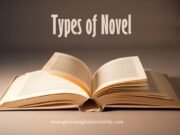
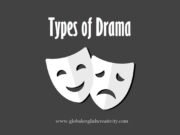







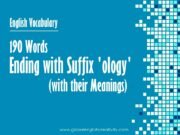
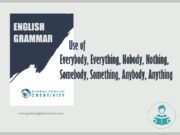

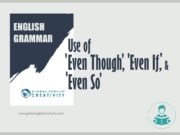
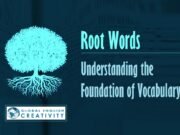



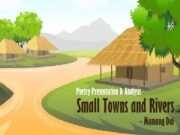

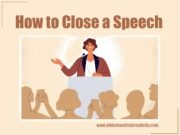


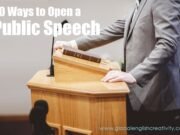
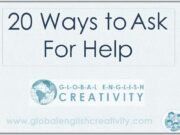

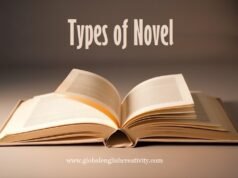
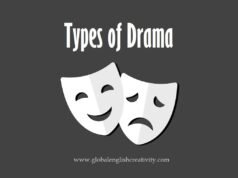

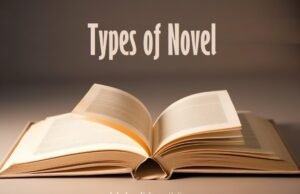










Good work sir! Liked the topics chosen by you.
Nice
Good work sir liked the topics choos by you I really want to be a great guidance and support by you I am very interested in this case it is a great guidance if I can get the topics in the future
Thank you🙏
Thank you for your help and information 🙂
Nice
Nice
Good… it is very helpful for us 👍☺️
It’s simply great info
Thanks Sir it is very useful for me in exam point of view and as well as in real life also.
Thanks for this
Thank You So Much
Wonderful sharing.